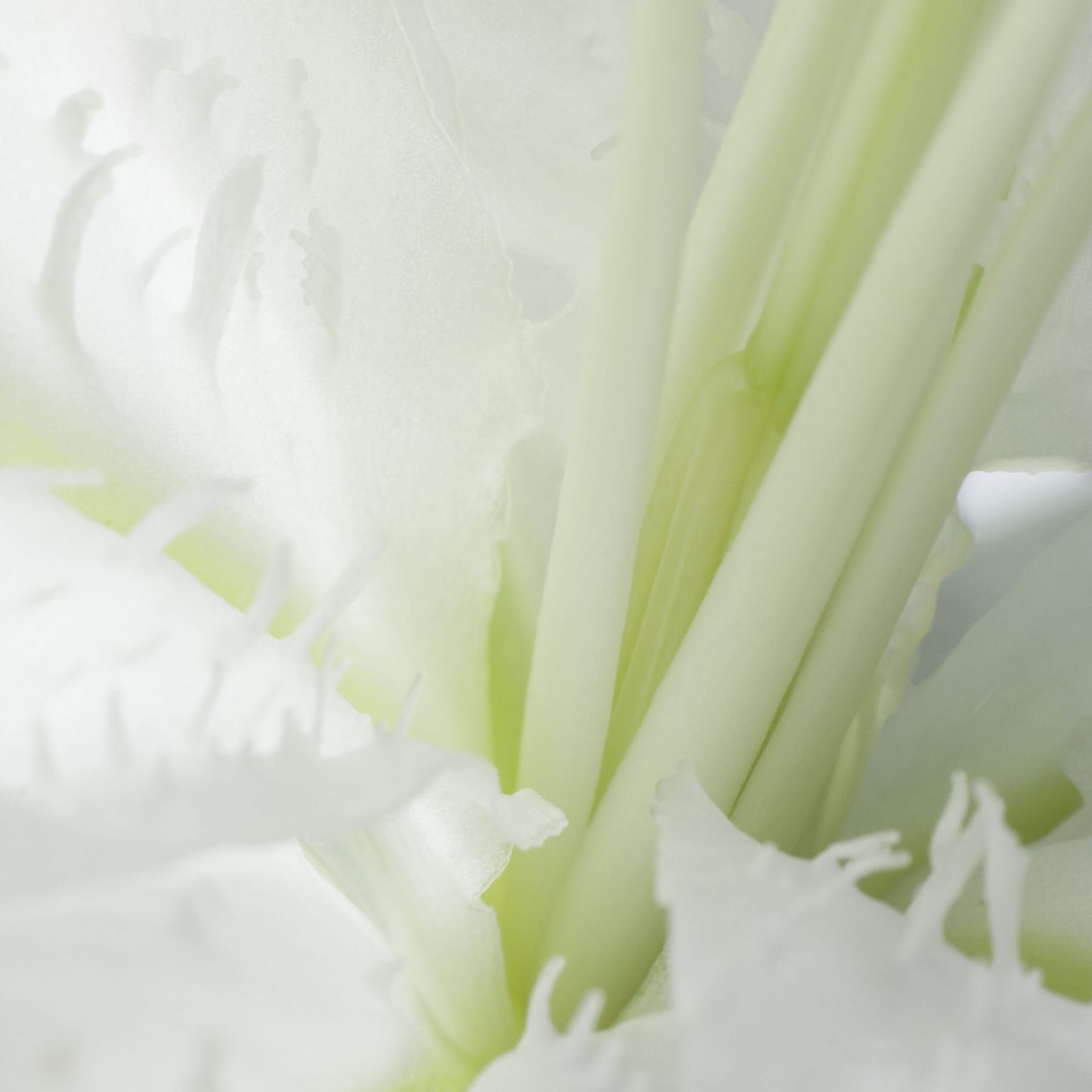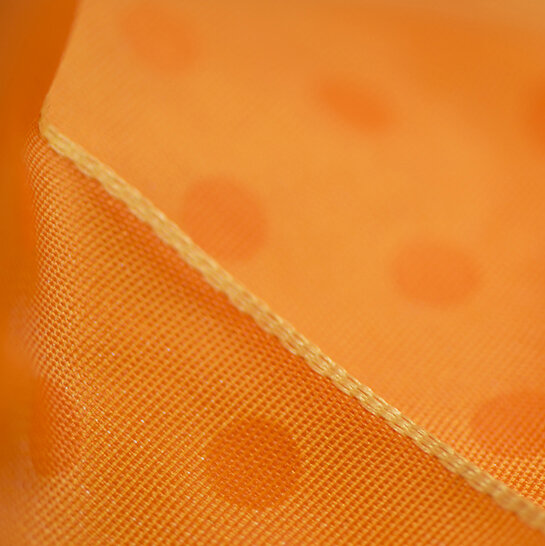We Can’t Drown Like Them
It was Daniel Hayes’ first day at Pickens High School. According to his menthol-stained probation officer, he was set for a fresh start. He had just spent four months in juvie for punching his gym coach at Hadley High School. Everyone at Pickens had already heard the news about the incoming senior before he even entered the building. In fact, Chelsea had just finished telling Aly about it as she tightened her hair into a ponytail in the main hallway. Aly stood against the lockers, holding her notebook, quickly clicking her pen and not thinking much of the gossip. Then the big metal doors to the main hallway of Pickens High School swung open to reveal Daniel Hayes in all his glory.
Conversations dropped off to murmurs as the scattered high schoolers turned to get a good look at Daniel Hayes. Aly looked on with a slight smirk while the clicking of her pen slowed down. He walked with a steadiness that sent shivers through the rest of Aly Hartman’s classmates. But she relaxed back against the lockers and watched his every move. Dark wispy hair fell down his forehead, a black t-shirt hung off his toned muscles and his long legs stepped past onlookers in torn jeans, and black scuff-covered boots. The fluorescent lighting that made her feel green and ghostly bounced off his jaw in a way she’d only seen in movies. He walked down the hallway as if he’d been down it a hundred times. He didn’t flinch at the snickers from the uppity soccer girls or the darting eyes of the freshman. The tension rolled right off him.
Chelsea had only taken a glance over her shoulder before turning back to her mirror and dragging the wand of strawberry lip gloss over her lips. Aly kept her dream-dazed eyes on Daniel Hayes, her shoulder blades shifted back as she tried to keep her cool. As he passed, he broke his mellow, forward gaze and turned his square chin and blue eyes to meet hers. The glance was long and intense and somehow more important than anything that had happened to Aly in weeks, or maybe even months. Aly nearly lost her mind. She felt herself peeling apart, sweat beading on her forehead, lips hanging open, letting out a breath as he walked farther down the hall. Chelsea interrupted her impending crush. “Someone’s got a staring problem.”
“Who? Him?” Aly asked with her head turned toward Daniel Hayes, who was gliding away.
Chelsea slapped her shoulder. “No! You.”
“Well, you didn’t tell me he was hot.”
Chelsea glared at Aly for a second and faintly shook her head.
“What? Why are you looking at me like that?” Aly knew why. She’d become wildly caught up on Daniel Hayes in just one glance. Chelsea started laughing, tightening her ponytail again and shutting her locker.
“You and your bad boys. Come on, let’s get to class.”
Aly thought about what Chelsea said for the rest of the day. She thought of her fifth-grade boyfriend, Seth Hinke, who was known for throwing rocks at cars from the back of the school bus. She thought about her sixth-grade crush on Ronnie Stinson who got suspended for skateboarding in the halls and smoking weed behind the cafeteria dumpster. She thought of her seventeen-day relationship with Greg Ikleheimer in seventh grade, brought on by him shoplifting a Snickers bar for her from the corner store, and how that all ended when she found out he had also shoplifted a Sprite for Carrie Albrecht, the weird horse girl.
While leaning on Chelsea’s white Ford Fiesta in the student parking lot waiting on a ride home, Aly thought of her eighth-grade boyfriend, Luke Ringer, who had gotten, not one, but two concussions by wrecking stolen golf carts. She didn’t think of herself as a rebel; she was just very, very bored and would do almost anything to not be bored, including hanging out with boys who didn’t care for rules or authority. But did that really matter? At least she wasn’t the one doing drugs or getting arrested. Then Daniel Hayes appeared in front of her. He walked right up to Aly with that vast confidence and flashed a smile that was warm and blinding, almost dangerous to look at.
He stuck out his hand, “Hi, I’m Danny.”
Aly knew she looked dumbfounded and tried to stretch her face into a smile while she shook his hand. His hand was strong, and for a kid who was known to throw punches, it was surprisingly soft.
“I’m Aly.”
Aly and Danny had a typical small-town first date. They drove thirty minutes in Danny’s blue pickup truck to the nearest thing of beauty: Lake Silva was tucked into a valley deep in the Appalachian Mountains. At night, the dark mountains cut across the glowing mess of stars and blue sky. Decades, or maybe even a century ago, someone bought the little town of Silva and decided that it’d be a nice place for a lake. So they broke the dam and filled the valley in with water. Mailboxes, street signs, a jewelry store, a bank, a courthouse, all drowned right there. If it was windy enough, you could hear the old church bells ring. When Aly and Chelsea were kids, they’d swim out into the center of the lake. On those really windy days, the low ring of the bell seemed to swim through the water and up Aly’s spine. She thought of the chiming as Danny told her how his distant family used to live in the town of Silva.
They stayed in Danny’s truck bed that night and laughed and kissed. Danny sat up, leaning against the cab of the truck with the back windows open so they could hear the rock station playing quietly. Aly sat next to him, his arm around her shoulder so she slumped against his chest. It didn’t feel like the first time they’d been this close. It felt so easy.
“You’re excited because you’re going on a date with the hot new guy and you’re nervous that he’s not gonna like you, but that’s stupid. Aly, there is a reason we don’t talk to anyone at school. It’s because they’re all the same boring rich kids with no backbones. Accept it, Danny came up to you for a reason. Go get him,” Chelsea had told Aly earlier that day, during their sixth phone call about the date. Aly tried to remember this as she watched him closely, getting lost in his strong movements and the smooth words coming off his lips. For a while, she couldn’t place what was going on under that hard, angled face. He was mysterious but not cold. All she could do was trust the few smirks he gave and that warm buzzing in her gut.
Danny was stoic, always looked like he had some sort of plan on his mind. He snuck glances at Aly; her blonde hair was down, and she wasn’t wearing much makeup. He liked her and her high cheekbones and pointed nose. She was small but not shy, and something about her just made him a little wild inside. He knew this was gonna be something. Hell, it had to be. She was the only one in town that seemed to be giving him a chance. He was nervous, trying to decide if he was talking enough. He spent so much of his time trying to keep his head down, not because of what people thought of him, but because he had to deal with the consequences when he got angry.
But at that moment, Aly Hartman was sitting with him, asking about his family and music and what his ideal weekend was and where he wanted to travel. She wanted to know him. He had to decide if he was going to let her in, but it didn’t feel like he had any control. She was already in.
As the night went on, any remaining nervousness washed away. Danny answered her questions and asked them in return. He told her about the kids he grew up with in Hadley and how they’d go off-roading on four-wheelers. She told him about her and Chelsea stealing brandy from Chelsea’s mom and driving to Lake Silva to go night swimming. They laughed and fell into each other and went back-and-forth telling stories of giddy stupidity. Aly’s head fell back when she laughed, and once she banged it into the back window, making them laugh harder. She let out a breathless, “Shit,” as Danny cupped his hand over the back of her head.
“Be careful.” He kissed her forehead. She put her head on his shoulder and they fell quiet for a few minutes.
“So Aly, do you think we’ll make it out of here?”
“What?” Aly looked at him with knotted eyebrows and a soft smile.
“Out of Pickens or any of these small, boring towns.”
“I think so. We have to. We can’t get stuck here like the rest of them.” Aly felt more sure about that than almost anything. Danny smiled wide hearing her say it. His mind flashed forward to them making it out together. He felt silly and almost crazy thinking like that on the first date. But finding her in a place like this felt nothing short of fate.
Danny drove Aly home, and at every curve in the mountain road he’d place his hand on her knee as if to keep her steady. Aly liked the heat of his hand and would shift her fingers over her mouth to keep from smiling too widely. She didn’t want to lose her cool in front of him. It scared her how much she liked him. As they drove back to Pickens, the two of them were more quiet than they’d been all night. She watched the trees blur past. He tapped the steering wheel to the rhythm of the radio. They weren’t tired, just thinking. Both of them sat fighting that falling feeling in their guts. Both knowing damn well they couldn’t stop themselves. He parked his truck at the top of Aly’s gravel driveway, which led to the clump of trailers down the slope by the creek bed. All of this was hidden by a curtain of old wiry trees covered in kudzu vines.
Danny thought about how secretive and mystical it looked. He was dropping off this beautiful girl to go back to her own realm, one he was worried he might never get enough of. He interrupted his own thoughts to kiss her. It was a kiss so determined and sweet that Aly knew she may not get a kiss like it ever again. So she hung her lips on his for a long time. She let her hand float up and graze his jaw. She pulled back and felt her heart bouncing in her chest.
“I should get going.” She unbuckled her seatbelt and hopped out of the truck. As she walked toward her trailer and passed the curtain of trees and vines, Danny yelled out after her.
“Aly, don’t be a stranger.”
“I wouldn’t dare.”
She made her way down to her front door, stopping on the small wooden porch. She let her head fall back and a big smile crash across her face. Her arms hung at her sides as she looked up at the dark sky, which was spotted with stars. All around her the leaves in the trees whistled, the creek bubbled, the crickets buzzed, and the low metallic clinging and murmuring of trailers being lived in all faded out. Aly took a big deep breath, one that cleared out her sinuses. She let herself be relentlessly ecstatic for a minute, letting all the good excited energy swirl around in her. She imagined all the time she’d spend with Danny, having his jawline scooped in her hand or his sculpted arms around her shoulders. Aly heard her ma moving around in the trailer and pulled herself out of the dream and tucked all that wild happiness away.
The two kept on dating, spending their time driving around town, parking in abandoned cul-de-sacs and the parking lots of closed stores. They kissed in grocery store aisles and behind held-up binders at school. He taught her how to drive with her knees and all about rock music.
When Danny’s dad was on an overnight shift at the factory, which was almost always, the two would play house. They’d sit out in the kitchen; Danny cooked and talked urgently about the new Nirvana album, and Aly listened, trying not to giggle at how excited he was. Danny Hayes may have been some stone-cold brooder, but he had a big, wild heart. She loved when he let out his silly and excited, boyish charm just as much as she loved the excitement of being with the town delinquent. Aly couldn’t help falling for that sweet thrill of being let in on the secret.
Sometimes they’d talk about the bad things. How they were both from down on their luck, poor, single-parent homes. Aly never really knew her dad, just knew her ma had chased him off with a rifle after a fight. Danny’s ma had died of cancer when he was two. When they had these talks, they would lie down in Danny’s bed, limbs intertwined, and he would run his fingers through Aly’s hair, scratching her scalp just how she liked. When the bad things came up, the conversation always turned to how they were gonna leave. They were gonna pack up Danny’s truck and drive to a city and get an apartment and figure it out, away from Pickens.
It was in these quiet moments together that Danny knew he was being given a second chance by Aly. In her eyes, he could be a different and better person. He could be someone his dad was proud of. He could be someone other than the angry loner everyone was scared to be around. When she rested her head on his chest or held his hand or kissed him, he realized she felt safe with him. He couldn’t think of a more important thing to be to someone.
Aly and Chelsea were used to being the loners in town, but with Aly and Danny dating, things changed. They weren’t just the quiet loners hating the popular group from afar, now there was tension from both sides. Danny was a troublemaker, even when he was keeping his head down. People didn’t trust the intense brooding and dark clothes and certainly not the rumors about his time in juvie. One day as school let out, Jackson Hurd, soccer player and heir to the local electric company, walked past the three of them in the school parking lot. Aly and Chelsea were leaning against the Ford Fiesta while Danny smoked a cigarette.
Jackson, trailed by a few friends, yelled over to them, “Hey, y’all better be careful before he ends up turning y’all to criminals too!” Danny wasn’t mad. He looked down and shook his head with a smile. Aly and Chelsea squinted at Jackson and his friends, who were squealing with laughter.
Aly shouted back, “Too late Jackson!” Danny and Chelsea cracked up.
Chelsea yelled, “Yeah, we’re planning an armed robbery at the bank, wanna join?”
Jackson shut up and kept walking. People in town loved making digs at Danny, and Aly and Chelsea loved having a reason to tell them to screw off. The uptight rich kids could get as mean and judgmental as they wanted. But they’d never really do anything, not with Danny around. A day didn’t go by without this sort of interaction, and every time the three of them laughed it off. There was a power to being considered the town punks. It wasn’t so much the attention but the excitement of knowing they really didn’t belong in that sad, rundown place.
It didn’t take long for the small-town gossip to catch up with Luanne, Aly’s ma. She knew within a week of the two dating that Danny had been in juvie. At first, she was enraged with Aly for being so flippant and dating him. She wanted to tear the rifle off her wall and storm up to that gangly boy and put the fear of God in him. But she didn’t. She had raised Aly as a rule breaker and to go after what she wanted. Unfortunately, teenagers often want stupid things.
Danny would drive his truck down the gravel path to the trailer and drop off Aly after their dates. Luanne would stand in the living room peering out the window, waiting. When Aly would come inside, she’d pick up on her ma’s sour expression immediately. And every time, Luanne would respond to Aly’s sheepish look with some vague warning like “he’s no good” or “watch yourself.” There would be no use in telling her not to see him or giving her an earlier curfew. Luanne saw too much of her own strong will in Aly to try to stop her.
The more time they spent together, the more Aly didn’t just set aside Danny’s rough edges, she began to enjoy them. She leaned into the fast driving, cigarettes, and loud grunge music. Danny lasted a few months before getting into a fight in front of her. Some guy at a graduation party for Danny’s senior class tried stealing his beer, and that’s when Danny turned jaded and hit the kid square in the nose. Blood poured out everywhere. Danny got into little altercations like that every few months. Every time, Aly’s heart beat fast and rattled, but she liked the pumping of her blood. She was never scared for Danny. She didn’t like that he was upset, but she admired how he always finished the fights. He never stole some kid’s lunch money or hit someone for no good reason. He had morals; he just dealt with them . . . physically. But at the end of the day, he’d turn to her with a pure sweetness she just couldn’t resist.
After the fights, Danny felt this twinge of shame. He couldn’t control that switch that made him lash out. What really scared him was the thought of losing Aly over it. He knew plenty of people that wouldn’t stick around for a hothead like him. But every time Danny got angry, Aly looked at him with kind eyes, running a light hand over his shoulder. She never looked scared, just worried for him. He was starting to feel real lucky. He’d found this girl who was fearless and kind.
Chelsea and Aly had been friends since middle school. Chelsea had watched Aly get caught up on delinquents for years, but she knew Danny was different. They’d been together for a little over a year, and she could see them growing into better people. Sure, she missed spending time alone with Aly, but she wasn’t one to sulk. She liked seeing Aly in this new light. Aly had always been honest with Chelsea, but with other people, she sort of sunk away. Now, she was more blunt and biting. Danny brought out some fire in her, and maybe it annoyed Chelsea that it took this bad boy to get her out of her shell¾but at least Aly was sticking up for herself. And hell, with Danny around so much, Chelsea really did like his company too. She liked having another person on their side of Pickens. She even cheered him on when he threw a bottle at a passing truck driver who whistled at Aly. He was a wild card but for the right reasons.
In April of ’93 when Chelsea had decided she really did trust Danny, Aly stomped up to her car in the student parking lot with mascara running down her face and smacked a positive pregnancy test on the window. Chelsea’s face dropped, her eyes wide and her mouth hung open. Suddenly, a great sense of responsibility overcame her. She reached across the car and rolled down the window. She could hear Aly wheezing incoherently.
“Get your pee stick off my window and get in!”
The two of them drove off to Chelsea’s farm property and parked along the edge. In the distance, a big storm was forming. Aly hadn’t said a single word since she got in the car at school. Chelsea tensed in her seat, she had no idea what to do or say at a time like this. The oncoming thunderstorm seemed to pull all the noise and oxygen out of the air. Chelsea had never liked storms too much, they made her nervous¾but right now there was something much bigger brewing in her best friend.
Chelsea couldn’t take the quiet anymore. “It’s gonna be all right.”
Aly let out this cry, or maybe a yelp that sounded equally helpless and angry. She wiped away the tears and snot. Then it all erupted out of her. “No, it’s not. Danny’s gonna leave, Ma’s gonna disown me. It’s just gonna be me and this baby in some single-room trailer that might as well be a storage shed on the side of the old highway, living off canned fruit and saltines. I’m screwed!”
Chelsea listened to Aly’s outrageous spiraling for a few more minutes. She waited until Aly took a breath to say anything. “So, you’re keeping it then?”
“Well, of course, Chelsea,” Aly said almost annoyed, wiping her tears and straightening in her seat. Somehow, Chelsea’s question had given her some clarity. For whatever reason, she knew in her gut that she wanted this baby. Chelsea stared ahead at the storm that was now twice as big. Across the acres and acres of flat farmland, she could see the gray, overcast sky deepening into the mass in the center. There were no birds in the sky, just leaves getting plucked from distant lines of trees. Aly had her feet up on the dashboard like usual. She thought about Danny and this baby. A bolt of lightning cut down the center of the sky. Chelsea clutched the edge of her seat. She wasn’t sure why she had never gotten completely past her fear of storms.
Chelsea drove Aly to Danny’s house. “You sure you don’t want me to wait?”
“No, this might take a while.” Aly took a long, deep breath and gave Chelsea a hug over the car console. It was a long hug, almost like they were saying goodbye in some way.
Chelsea patted her back and pulled away. “It’s gonna be okay.”
Aly was already crying again when she knocked. Danny opened the door and his face fell. He wrapped his arms around her. She cried the words “I’m pregnant” into his arm. The words were so muffled that he didn’t hear what she said. She pulled herself away and looked at him for a long time.
“I’m pregnant.”
Danny went into shock like any nineteen-year-old boy would. He stood there silently on his front stoop, mouth open, eyes wide and staring blankly. He had been faintly holding onto her hand and without his face relaxing one bit, lifted her finger to his mouth and gave a light kiss before turning slowly and going back inside.
Aly stood at the front door, confused for a minute, before slowly following him into the house. Aly looked at him with her head cocked to the side, waiting for a response. He began to pace back-and-forth through the living room. His face was serious with forehead wrinkles and that sharp unmoving jaw. One hand rested on top of his head, with his fingers running through his dark hair, making it stick out in all directions. Aly took a seat on the couch to wait on him. She tried not to return to a state of panic, but after what felt like hours, she couldn’t take the quiet.
“Danny?”
When she said his name, he stopped his pacing and looked at her. A wild, goofy smile cracked across his face, so starkly different from the cold panic he’d been in that Aly worried if he had lost his mind. “Oh, baby.” Tears grouped in the corners of his eyes, and he fell around her on the couch. Aly felt his warmth and his jaw poking into her shoulder. He gripped her shoulders. He ran a hand softly over her stomach, pulling up her shirt as if he would already be able to see a bump. They looked at each other for a long time. He couldn’t find the words and neither could she. They kissed one of those kisses that is stuck in time, one that filled that small two-bedroom brick house and the entire town for a moment.
Aly and Danny must’ve looked like ants in the center of the gray couch in Aly’s trailer as Luanne sat in her recliner, a crossword puzzle in her hand. Aly did most of the talking, and anytime she got nervous, which was most of the time, she’d grip Danny’s hand so hard he felt his knuckles meld together. Luanne asked questions like she was interviewing the two for a job. Her face was straight and flat, unreadable: A brick wall with a biting tongue. This wasn’t unusual, but it made Danny and Aly more nervous now than ever before. She railed the two teens with questions. She asked Danny if he could support a family on his factory job, she asked Aly if she was staying in school, she asked where they were going to live. They answered the best they could, Aly with earnest rambling and Danny with an uncomfortable politeness that stuck out in the room. Thirty minutes into the questions, Luanne stood up, grabbed her cigarettes from the kitchen drawer, and walked outside. She stood outside the living room window and continued the questions through the screen.
“Ma, why you standing out there?”
“The smoke is bad for the baby.”
Aly unclenched Danny’s hand and smiled to herself.
As soon as Aly started showing, things turned sour at school. The tension shifted from her troublemaking boyfriend to her and her stomach. She got grumpy and protective. Luanne’s deal was for her to keep going to school for as long as possible and then get her GED. Chelsea hung around her even more at school, ready to snark off to any of the judgmental sporty girls. The two of them would stand in the halls, Chelsea glaring back at whoever looked like they had something to say. It seemed like everyone was against them, especially that group of damn varsity players. No one was rich or important in Pickens, but the kids on the varsity soccer teams sure thought they were. They all had parents with money flowing in and out of the local government and school district. They walked around like they owned the damn place. They whispered and would dart side glances at anyone too poor to care about varsity sports.
Without Danny by her side at school, the real mean ones from the popular crowd got fearless. She tried to ignore it, but with her hormones, it was hard not to react. When Aly complained to Danny about her classmates being jackasses, neither of them were laughing anymore. Danny hated not being there for her, and he felt that deep rooted need to protect her and their kid. He had never thought about being a dad before, but he was starting to like the idea. He’d pick her up after work, and they’d talk about the future and proving everyone wrong and moving away and raising a family and being happy. But both of them spent a lot of time being scared of what was coming. They were afraid of being parents, afraid of not getting out, and afraid of driving each other away.
Aly was five months pregnant when Claire Wilkerson stomped up in her khakis and running shoes and asked, “So what? Are you gonna buy a graduation cap for your baby too?” Aly had a slushie in one hand and dumped the icy red pulp upside down onto Claire Wilkerson’s head. Claire stood mouth open, hands sprawled out in shock, covered in the sticky syrup. Aly walked out before anyone could suspend her. That was her last day of high school.
Luanne was pissed at Aly for weeks about dropping out, until one day Luanne’s pain-in-the-ass coworker asked if Danny had gotten anyone else knocked up. Luanne came home that day and brought Aly a glass of sweet tea to her room. “People are boneheads, I tell ya.” Luanne handed over the glass to a sweaty, sprawled out Aly. “I know, Ma.”
In mid-November, Aly was lying on Danny’s couch, her legs stretched over his lap with her head propped up on the armrest. She rested her hand on her seven-months-pregnant belly. MTV was playing quietly on the TV.
“Danny, do you think I’m gonna be a good mom?”
“Absolutely.” Danny rubbed her feet.
“How do you know that?”
“Because you take care of me. You’re always patient and good to me. At the end of the day all we have to do is love the kid, right?” Danny looked at Aly who was tearing up.
“How are you so sure?”
“I just am. Baby, there are so many screwed up people on this planet that have kids. I think we’re better than most of them.” He reached his arm over and wiped a tear off her cheek.
“I guess so.” She pouted and then covered her face with her hands.
“Oh, come here.” Danny pulled Aly to a sitting position. He held her chin and guided her into a kiss. She leaned into it until she was in his lap with her arms wrapped around his neck.
She whispered into his ear, “You know I love you right?”
Danny laughed. “Of course, baby. And I am so, so wildly in love with you.”
Aly smiled, wiping her tears. “Good. I know it’s a silly question, but everything is changing and I just feel scared.”
“Well, that’s never gonna change. I’ll love you and this baby forever. Come on. Let’s go for a drive.” Aly smiled and nodded.
Aly hoisted herself into Danny’s pickup truck. He laughed at her struggling. “Don’t laugh at your pregnant girlfriend. It’s rude.” They ended up at Walmart walking through the baby aisle filled with bibs, rattles, and pacifiers. They held hands and talked about Danny’s work and laughed and Aly started to feel good and less stuck in the world. She looked through a kid’s book with thick cardboard pages and singing animals. Danny started putting stuff in a cart, and Aly gave him a worried pout. He took the book and dropped it in the cart. “Come on, we’ve got the money.” Aly gave in and held up a little shirt that said “Born to be Wild” and they both laughed. Danny looked at Aly in her orange tank top that didn’t reach over her belly and her white flip flops that smacked on the hard floor. He smiled at her slight waddle and pressed his hand onto her back as they rounded the corner.
Across the aisle, a snickering group of the varsity snobs from Pickens High stood in the video section. Danny whispered into Aly’s ear, “Don’t mind them.” Aly felt sick with nerves. She tried to smile at the crib with the elephant mobile hanging over it, but the happy moment had passed. All she could feel were those judgmental glances from her old classmates. Cameron Edwards, the football player with the loud mouth, says, “Oh look, it’s the parents of the year.” The group snickered and Danny’s hand wrapped around the crib, knuckles turning white, blood rushing through his body. Anger came from everywhere at once. Aly watched him turn like this, the sick twirling in her gut getting worse.
“All right, let’s go.” She rubbed his shoulder until his hand released the crib. They had almost made it away from them when Aly heard one of the girls say, “Her baby bump can’t even fit in her tank top.” She turned and shouted, “You’re all assholes!” Danny grabbed her hand and pulled her away. They left the shopping cart and walked out. They were both quiet as they got back into the truck.
Aly could tell Danny was still thinking about those kids by the way he rapidly tapped the steering wheel. He pulled into the gas station down the road and looked at her while trying to mask his turmoil. He was mad in a way he couldn’t get past. He was thinking he should’ve hit that Cameron kid or at least been the one to yell at them. He shook as he walked across the parking lot, thinking about how much he hated how people looked at Aly.
She sat in the passenger side of Danny’s truck parked next to the gas pump. Her mind wandered back to twenty minutes before, when the two of them were giddy in the baby aisle before those jackasses showed up. She leaned the seat back to get the pressure off her lower back as she held onto that happy moment. She didn’t want to be so worried about Danny or the future.
Danny walked out of the gas station, a cherry slushie in one hand for Aly and swinging his keys in the other. His head was tilted forward so his eyes met the oil-stained concrete as he crossed under the fluorescent lights where mosquitos spun furiously in clusters. Aly watched him walk, feeling that his frustration hadn’t left at all. He handed her the cherry slushie through the window and began to pump gas. The night air was humid but not hot or cold, just heavy¾so heavy that the silence between them felt like it lasted forever. He continued swinging his keys, the metal clinked and his jaw clenched tight. Aly couldn’t stand the tension of it. She couldn’t stand the smell of gasoline or how the air wasn’t hot or cold, just heavy.
“Do you think breathing in gasoline fumes is bad for the baby?” Aly asked, as if the answer was going to change Danny’s mood.
“No Aly, it’s fine. I wouldn’t go around sticking straws in gas cans but the fumes won’t hurt you or the baby.” Both of them smiled slightly but Danny’s smirk faded quickly back into that blank hard stare.
He put the nozzle back into the pump and got into the truck. He fumbled around with his keys and finally found the right one. Aly couldn’t tell if her growing headache was from the gasoline or the bright overhead light or the three large gulps of her slushie or the tension. The middle-aged gas station clerk who only talked about race car statistics peered through the glass doors, muttering to the high school janitor as they gestured toward Danny’s truck. Aly traced their gaze across the parking lot to Danny, whose knuckles had turned white wrapped around the steering wheel, like he might rip it off any second. Aly sighed. “Let’s go.”
“I just wish people would mind their own damn business.”
“This is Pickens. Everyone knows everyone’s business, whether they want to or not.”
Danny didn’t say another word. He shifted the truck into drive. They sat silently as he pulled the truck out of the gas station and right up to the four-way stop. Danny’s hand continued clenching the steering wheel. Aly’s slushie lapped inside the Styrofoam cup. Both of them stared out at the clear sky. The sky, dark and vast, melted into the horizon of trees and dark country roads that Danny and Aly had spent countless hours roaming around over the past two years.
Danny pulled through the intersection and a sound so sharp and loud stopped the whole night. There was a loud scream of scraping metal and Aly jolted back into her seat. A roaring of tremors shook through her as her adrenaline peaked. Her cherry slushie poured out all over her lap, the deep red icy pulp stuck to her thighs and the base of her stomach. It looked like blood. She shook the false violent image out of her mind. The airbag deflated as she wrapped her arms around her stomach. With her fingers webbed out, holding either side of her belly, she took everything in her and breathed deeply. She focused on the warm flicker of the baby turning in her gut. She was okay. The baby was okay.
The windshield was shattered. Smoke poured out in a tall cloud from the hood, and through it Aly saw the jet-black Honda that had bounced off the truck and jacked across the road so that they faced each other. The two distant streetlights dimly lit the scene in a cold light. Danny was out of the truck and dragging the other driver out of his car. He couldn’t have been older than Aly. In the dim light the kid’s face looked like a baby’s, almost doughy. Danny threw the kid down onto the asphalt and began to swing. Aly watched frozen, still holding her stomach, her feet pressing into the floor as her heart slammed in her chest.
Danny turned his head so she could see his face, just for a second. He didn’t look like anyone she had ever seen. His face was absent, hollow, empty. In the shadow, his jaw was a blade, his skin cold and grey, almost like the cement. He was no hero. She didn’t feel safe or excited or on the right side of anything. Danny wasn’t stopping. The kid wasn’t fighting back. He lied there on the ground not moving. His face was hardly anything. Aly couldn’t make out one single feature, no nose or eye or cheek¾just blood and pulp. She had thrown open the truck door before she knew what she was doing. She had never intervened with Danny when he was angry. But something, somehow had cracked in him. She knew it deep in her gut.
“Danny, stop!” He didn’t hear or register her voice. His arm jerked back again for a punch as she stepped towardhim. She tried not to look at the faceless kid, or his high school lanyard and golden cross necklace draped around his neck. She wanted to scream or cry or do something. She wanted everything around her to fall down so she knew it was a dream or an illusion or a bad joke or anything other than real. She put her hand on Danny’s shoulder, and felt his hard muscles racking around.
Under her touch he stumbled back, violently trembling, as if she’d just woken him up from a bad dream. His eyes were wide as he looked at her: dirty blonde hair pulled back, features mousy and soft, her limbs toned and full under the weight of her pregnancy. Maybe he wanted to be looking at an angel. He stared at her center, where the slushie had fallen and understood his mistake. He looked down at the deep browning crimson on his hands from the driver and back to the icy light red dripping down Aly. He seemed to understand everything in that moment, every misjudged action, weak impulse, and every dark part of him and everyone else’s life. Or at least that’s how changed he looked. He looked like an entirely different person. His face was flat with shock, and his mind blank except for the gut-wrenching regret drowning him over and over.
Aly stood back, afraid to move or speak or even touch Danny. She looked at the kid lying there and she knew he was gone. There was nothing left of him. The shock was ringing through her. She couldn’t cry or scream. She couldn’t bear to look at Danny so she just kept staring at the faceless kid’s body on the pavement. When the ambulance arrived, Danny and Aly were just standing there under the cold light, among the smoke and broken glass. Danny covered in blood, Aly covered in the cherry slushie. Both silent. The teen driver was announced dead at the scene.
Danny had no chance as a teen with a record against a dead kid with rich parents. On his public defender’s advice, Danny took the plea deal of a twenty-year sentence for voluntary manslaughter. When Danny was taken away from the hearing, Aly went cold during their hug. His heat, strength, and smell wrapped around her, and she shook and sobbed. She inhaled his smoky evergreen cologne, knowing she could never stop loving him, nor could she ever stop being afraid of him. He walked off in cuffs, his hands held tight in fists. After the crash, Aly couldn’t stop seeing blood. She woke up gasping from dreams of Danny’s fist breaking over the faceless kid. She saw Danny’s stiff blood-spattered jaw. She saw blood dripping down his fingers and across his palms.
Chelsea came over every day and the two sat in this heavy thick feeling of nothing ever being the same again. In the first week Chelsea brought her a cherry slushie, hoping to return some normalcy. Aly smiled and took the cold cup. Her tongue pulled the sweet syrup up and all she could taste was iron. All she could feel was the wet cold across her stomach and the slam and crash of broken glass. Aly wept and Chelsea slowly took the slushie back. Aly’s breathing returned and Chelsea remembered the cherry stains from the tank top she’d been wearing the night of the crash. “Are you okay?”
The muscles started moving again in Aly’s face. She wiped the snot off her nose and laughed. “Bring me a blue raspberry next time.”
Jessie Hartman was born six pounds and eight ounces with a red flushed face and eyes the same cold color as Danny’s. Being pregnant in Pickens was one thing, having the baby was a whole other problem. Now that the small plague of a town had the satisfaction of the bad boy being locked up, they felt the need to come up to poke and prod at Jessie. In the baking aisle of Piggly Wiggly, Aly’s wiry old high school math teacher, Mrs. Williams, stopped to say, “At least Danny’s not around to hurt the sweet baby.” Aly thought about taking the bottle of Mrs. Butterworth she was holding and smacking the old lady over the head. Aly held herself together until she got in the car and angry cried all the way back home.
Luanne knew they needed to move the minute Danny was locked up. It was a matter of time before the snakish town sucked them dry. Pickens would just keep taking and taking from them. As soon as Aly was ready, they’d be moving in with Luanne’s sister, Sue, in her Florida condo. Luanne tried bringing it up, only to be met with incoherent sobs from Aly. She packed their things in secret, knowing any day that Aly would want to leave.
The cold morning light of February started to lift out of the trees and through the blinds into Aly’s room, where she held a sobbing Jessie to her chest. He’d broken his calm behaved streak and had kept her up since 2 a.m. She spent hours pacing, rocking, feeding, cooing and off and on crying herself. Luanne stayed out of it for as long as she could before finally poking her head into the bedroom. “Take him on a drive, it lulled you to sleep every time.” Aly got Jessie strapped into the back seat, his shrieks cut through the cluster of trailers and scared off the chirping birds. She was still wearing her pajamas, but added a padded winter coat on top. She’d stopped giving a damn about what she looked like, she knew it wouldn’t change the long judgmental stares.
Aly pulled out of the driveway, past the church across from the trailer park and down the curvy, kudzu vine-ridden road. Soon enough Jessie stopped his whining and fell asleep. She drove slower than usual, carefully dodging potholes. For two months she’d been avoiding the gas station at the center of town. She’d been taking the crumbling road that looped around the east side of Pickens. The flashes of blood and the crash were frequent enough without passing the site. But Jessie was quiet for the first time in a century. She took shallow, controlled breaths as she drove down Greenville Road, which cut straight through town. Aly’s knuckles tightened around the steering wheel. She passed the post office, the high school, and the Walmart. The gas station hummed at the opposite side of the intersection. She felt cold and sick. The red of the stop light dripped down in front of her, blood splattered on the hood of the car. She heard the crash, glass shattering, the sound of the beating. A truck honked behind her, her foot dropped down on the gas and she slid through the intersection. The crash and blood and beating on a loop in hectic flashes until Jessie’s sudden whining snapped her out of it. She had pulled over on the road right past the gas station. Aly looked in the rearview mirror at Jessie. “We gotta get out of here, baby.”
Two weeks before they were set to move, Aly drove over to the South Carolina State
Prison. She left Jessie with her ma, knowing bringing him to Danny would be no good. She had replayed this day in her mind countless times. She knew at the sight of Jessie, Danny would come undone. She couldn’t bear to watch. Maybe that was selfish, but deep down she knew it would be better for everyone. Sometimes, Aly imagined bringing Jessie to the prison and telling Danny she loved him. She imagined him getting released on bail in a few years. She would wait in Pickens for him. The three would move away and be happy and forget about it.
But that wasn’t possible. They couldn’t be happy together. Even if he was let out, he had killed a kid right in front of her and she would never know for sure that he wouldn’t do it again. A crime of passion or not, he couldn’t be around Jessie. Aly was scared. She was scared of how Danny would react. She was scared that she still loved him. She was scared that she’d lost so much. And more than anything she was scared for Jessie. She had left him with her ma that day, a part of her worried that even a few minutes with Danny would hurt him somehow. A three- month-old baby probably wouldn’t know the difference, but she couldn’t risk it. She already saw Danny’s features on Jessie’s face, the rugged nose and cold blue eyes. She knew she couldn’t handle it. She wasn’t strong enough to sit there with Danny in prison, holding their baby, knowing they got so damn close to happiness.
Danny didn’t look like himself behind the plexiglass. He looked thin and his skin was sunken. All that wild, eager, sweet, energy was gone. The tan jumpsuit made him look skeletal, barely even there. Aly hadn’t recognized him since the night of the wreck. Because of the violent crime, he didn’t get common area visits. Aly wouldn’t be able to touch him, she wasn’t sure she’d want to if she could. The second she sat down and faced those eyes through the scratched glass, tears started to fall.
“You look great.” Danny smirked, the same smirk from the day they met.
Aly had worn his favorite pair of jeans, the ones with studs on the trim and the pocket ripped from the time she got stuck crawling through a fence to an abandoned lot. They were too tight with all the post baby fat, but she’d sucked herself into them for whatever reason.
“Thanks.”
She hated every second of this. Her mind flooded with memories, not of the wreck, but of being endlessly in love: driving in his blue pickup truck with music blasting, laying in his arms on the faded green couch, sitting on the kitchen counter talking about their future and staring out at Lake Silva, and betting everything they had on a happy life out of Pickens.
Danny stared at her through the glass with a gentle and faded look. He looked at her carefully, something deep in him knowing he wouldn’t see her for a long, long time. He thought of the first day he saw her standing in the school hallway, relaxed against the lockers, effortlessly beautiful. When they locked eyes that day, he told himself he was gonna go after her. Under the cold lights of the prison he felt himself shaking, trying to hold it together¾he knew he’d lost everything.
Aly shifted in her seat, unable to hold eye contact with Danny. She crossed and uncrossed her legs three times. She tried not to think about the pain. She tried to pretend not to be there. Chelsea’s voice rang out in her mind, Just say it! The light in the room was almost green and three booths down a man was pleading through the plexiglass about seeing his wife.
“Where’s the baby?”
“I left him with Ma. His name’s Jessie.”
Danny’s leg bounced uncontrollably under the desk as he nodded slowly. “I like that.”
Aly slid a picture of Jessie in the delivery room through the slot. Danny picked it up and sobbed into his hand. His voice muddled and hoarse. She couldn’t remember ever hearing him cry like that. For a minute, Aly wanted to stand up and yell that she loved him and that she’d wait for him, but that wasn’t true. She swallowed, trying to push every emotion down.
“Danny. We’re moving to Florida.” Aly wanted to puke as it left her. Danny looked at her with a look so deep ofhurt and pain she felt like she should be the one behind bars. “It was Ma’s idea.” Aly knew that wasn’t helping. “Pickens is too harsh. No one will leave us alone. I can’t raise him in a town like that.” She couldn’t tell him about the nightmares. She didn’t want to blame him anymore. Danny’s head shook, his fist curled tightly. His face morphed as he tried to hold in tears.
“What the hell, Aly?”
She stiffened at the anger in his voice. She tensed so hard she thought she could turn to stone right there if she really wanted to. “I don’t know what else to do. I can’t bring him here for the next twenty years. That will just mess him up.”
“So, what the hell are you gonna tell him about me?” His voice grew harsher.
“I don’t know.” Aly sunk in her seat, nervously looking down. “We just can’t stay here.”
“Dammit, Aly.” He slammed his fist on the table. The guard stepped closer. A baby cried in the waiting room. “You can’t keep him from me.”
Aly cried, her chest tight and pumping, tears dripped down onto the table and onto her studded jeans. His anger crawled up and down her skin, she couldn’t bear the rage barreling through him. “I have to.”
“No, you don’t!” He was pleading, more hurt than anything else.
“Danny, please.” Aly placed her hand to the plexiglass and waited for him to match his fingers to hers. She wanted a moment of softness, even if she knew that might be gone forever, she had to try. Danny’s face was red and his eyes full of anger. He jumped up and knocked over his chair, the metal scraped across the linoleum. The guard yanked Danny away. Aly watched him disappear around the corner.
Aly sat quietly for a moment, her sobs hardly making any noise. Slowly, she felt herself become numb. The pain and hurt and love and regret all fading into a low buzz. She watched from outside her body as she shakily, pushed herself out of the chair and left.
Natalie Benson-Greer is a Chicago based writer with a Bachelor’s degree in Creative Fiction Writing from Columbia College Chicago. Her work “Backwoods” is published in the Winter 2019 issue of Hair Trigger, where she previously worked as an acquisition editor. During her time at Columbia College she served as an executive board member of the college’s only writing collective, Speak Your Truth, and worked with the fiction department as a peer tutor. She grew up in Asheville, North Carolina and deeply misses the mountains.










